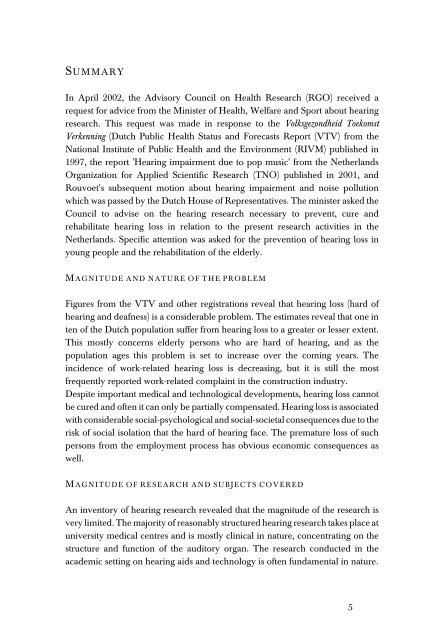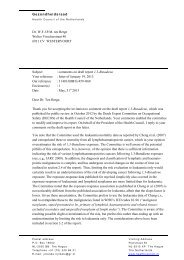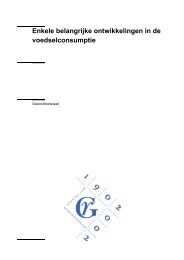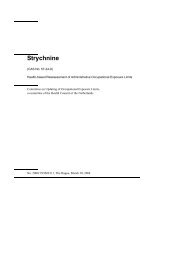Publication ( PDF , 981.92 KB ) - Gezondheidsraad
Publication ( PDF , 981.92 KB ) - Gezondheidsraad
Publication ( PDF , 981.92 KB ) - Gezondheidsraad
You also want an ePaper? Increase the reach of your titles
YUMPU automatically turns print PDFs into web optimized ePapers that Google loves.
SUMMARY<br />
In April 2002, the Advisory Council on Health Research (RGO) received a<br />
request for advice from the Minister of Health, Welfare and Sport about hearing<br />
research. This request was made in response to the Volksgezondheid Toekomst<br />
Verkenning (Dutch Public Health Status and Forecasts Report (VTV) from the<br />
National Institute of Public Health and the Environment (RIVM) published in<br />
1997, the report 'Hearing impairment due to pop music' from the Netherlands<br />
Organization for Applied Scientific Research (TNO) published in 2001, and<br />
Rouvoet's subsequent motion about hearing impairment and noise pollution<br />
which was passed by the Dutch House of Representatives. The minister asked the<br />
Council to advise on the hearing research necessary to prevent, cure and<br />
rehabilitate hearing loss in relation to the present research activities in the<br />
Netherlands. Specific attention was asked for the prevention of hearing loss in<br />
young people and the rehabilitation of the elderly.<br />
MAGNITUDE AND NATURE OF THE PROBLEM<br />
Figures from the VTV and other registrations reveal that hearing loss (hard of<br />
hearing and deafness) is a considerable problem. The estimates reveal that one in<br />
ten of the Dutch population suffer from hearing loss to a greater or lesser extent.<br />
This mostly concerns elderly persons who are hard of hearing, and as the<br />
population ages this problem is set to increase over the coming years. The<br />
incidence of work-related hearing loss is decreasing, but it is still the most<br />
frequently reported work-related complaint in the construction industry.<br />
Despite important medical and technological developments, hearing loss cannot<br />
be cured and often it can only be partially compensated. Hearing loss is associated<br />
with considerable social-psychological and social-societal consequences due to the<br />
risk of social isolation that the hard of hearing face. The premature loss of such<br />
persons from the employment process has obvious economic consequences as<br />
well.<br />
MAGNITUDE OF RESEARCH AND SUBJECTS COVERED<br />
An inventory of hearing research revealed that the magnitude of the research is<br />
very limited. The majority of reasonably structured hearing research takes place at<br />
university medical centres and is mostly clinical in nature, concentrating on the<br />
structure and function of the auditory organ. The research conducted in the<br />
academic setting on hearing aids and technology is often fundamental in nature.<br />
5

















